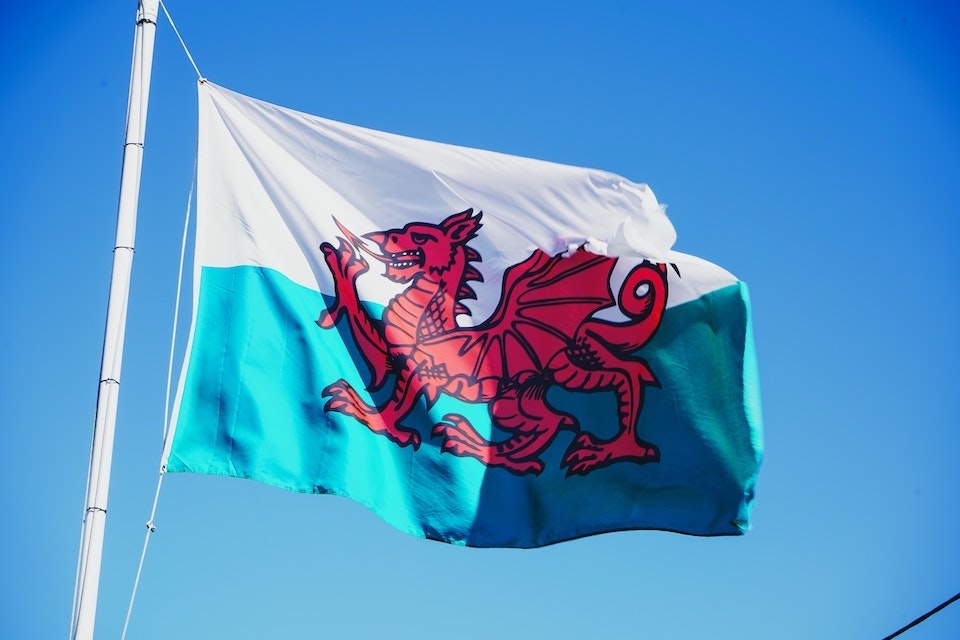
To help drive up diversity across Wales, the Cabinet Office has pledged to treat the English and Welsh languages on an equal footing. To improve the voice of Welsh speaking citizens, the Civil Service Jobs team now has the option of issuing job adverts in Welsh.
Ten. That’s how many languages indigenous to the British Isles are still spoken today. And if, like me, you’re curious as to what they are, they include: English, Scots, British Sign Language, Welsh, Gaelic, Irish, Cornish, Manx, Angloromani and Shelta. This diversity is what makes the UK so rich in history, some of which was glorious and some dark.

Henry VIII
The Welsh language was spoken in Britain before Roman occupation. It evolved during the Anglo-Saxon period, developing into the early foundations of Cornish and Welsh in the south west regions of Britain, and Cumbrig in the north of England and lowland Scotland.
Banned
During mediaeval times, the Welsh language flourished. But following Henry VIII’s Act of Union, its use was banned and its official status removed. The Welsh language was replaced by English, at least on official matters, and oral traditions that had survived centuries were lost. After centuries of banning the language and discriminating against its speakers, in 1967, a very important piece of legislation was introduced: the Welsh Language Act. It gave rights, albeit limited, that allowed people to use the Welsh language in legal proceedings in Wales.
Equality
Through its Welsh language scheme, the Office of the Public Guardian intends to provide as many of our services as possible in both English and Welsh. The UK government places a duty on public bodies to treat both languages equally, when providing services to the public. To achieve this, the Cabinet Office has adopted the principle that in the conduct of public business in Wales, it will treat the English and Welsh languages on a basis of equality. In the Civil Service Jobs team, part of the Cabinet Office, we have been cooperating with the Welsh Government but also working collaboratively with HMRC and DWP, to make the user experience for Welsh speakers better.
 Apply in Welsh
Apply in Welsh
From Wednesday 22 June, Civil Service Jobs recruiters and vacancy holders have had the option to provide a Welsh version of their job advert, and the content within the Civil Service Jobs portal has been translated into Welsh language. This allows Welsh-speaking candidates to see the job details and apply in Welsh. Candidates will also see the user journey in Welsh if they choose to.
Positive experience
Numbers of Welsh language users may not be high, but they matter - because it is our commitment that every user that visits Civil Service Jobs is treated fairly and has a positive experience during their job search and application process. Candidates can also sign up for job alerts in Welsh, and any notification that comes from our system will be provided in Welsh if they have selected it as their preferred language.
Incredible team effort
To get to this point, we completed a round of Welsh language user research, led by HMRC, that helped us understand some of the differences between the journeys and expectations of Welsh language users versus English language users. We incorporated some changes to our designs and user interface, to ensure users were able to easily identify how to toggle between both English and Welsh.
Translations were provided by a team of colleagues at DWP, who are not only native speakers of Welsh but also official translators and great ambassadors for Welsh language and Welsh culture. It was an incredible team effort to get to where we are, and whilst it may be seen as small, it’s a huge gain if it means there are users out there who will have a better experience and gain a sense of inclusion from visiting our site.
 Promoting Welsh heritage
Promoting Welsh heritage
There is still work to be done, as departments don’t have the obligation to translate their adverts. But we will continue to promote the translation of adverts and collaborate with our colleagues in Wales, to ensure the importance of the Welsh language is understood.
Today, the Welsh language is embraced and spoken at home, in the workplace, in the community and in government. It’s estimated that almost 800,000 people speak Welsh. We are committed to supporting the Welsh Government’s plan to reach one million Welsh speakers by 2050, and we are confident that through raising awareness, this number may increase sooner.

9 comments
Comment by Anon posted on
I'd say the Irish language is actually indigenous to Ireland, funnily enough
Comment by Maryam posted on
I've always been fascinated about the languages indigenous to the British Isles, especially Welsh. It would be so cool if there were government-led initiatives to learn these languages... especially in the Civil Service.
Comment by Gareth posted on
Welsh Language Act 1993: "in the course of public business and the administration of justice, so far as is reasonably practicable, the Welsh and English languages are to be treated on the basis of equality".
Difficult to conceive that it was "unreasonably impracticable" at every point in the intervening 29 years to get to this point?
Comment by Christiana posted on
This is phenomenal . Grreat work Monica. Amazing work to the team too.
Comment by Andrew McVicar posted on
Great work in delivering this & brilliant to see the history of this too.
Comment by Jack Richardson posted on
Great blog Monica! Great work from the team, thank you for leading in this important area.
Comment by Gavin Thomas posted on
Bore Da Monica!
Diolch for a really informative piece.
I have been fortunate in my lifetime to have spent time in both North Wales [Llangower near to Bala Lake] and in the South East of Wales [Cardiff] and recall the Welsh language to be more spoken in the North.
I am pleased that work is being done to ensure that Welsh and the other languages indigenous to the British Isles are being preserved in this manner.
Comment by Arnold posted on
There's actually 12 languages as you've missed Ulster Scots and Irish Sign Language.
Comment by George posted on
What about Jèrriais and Guernésiais? I suppose the Channel Islands aren't *really* part of the British Isles, but I think they deserve some love too.